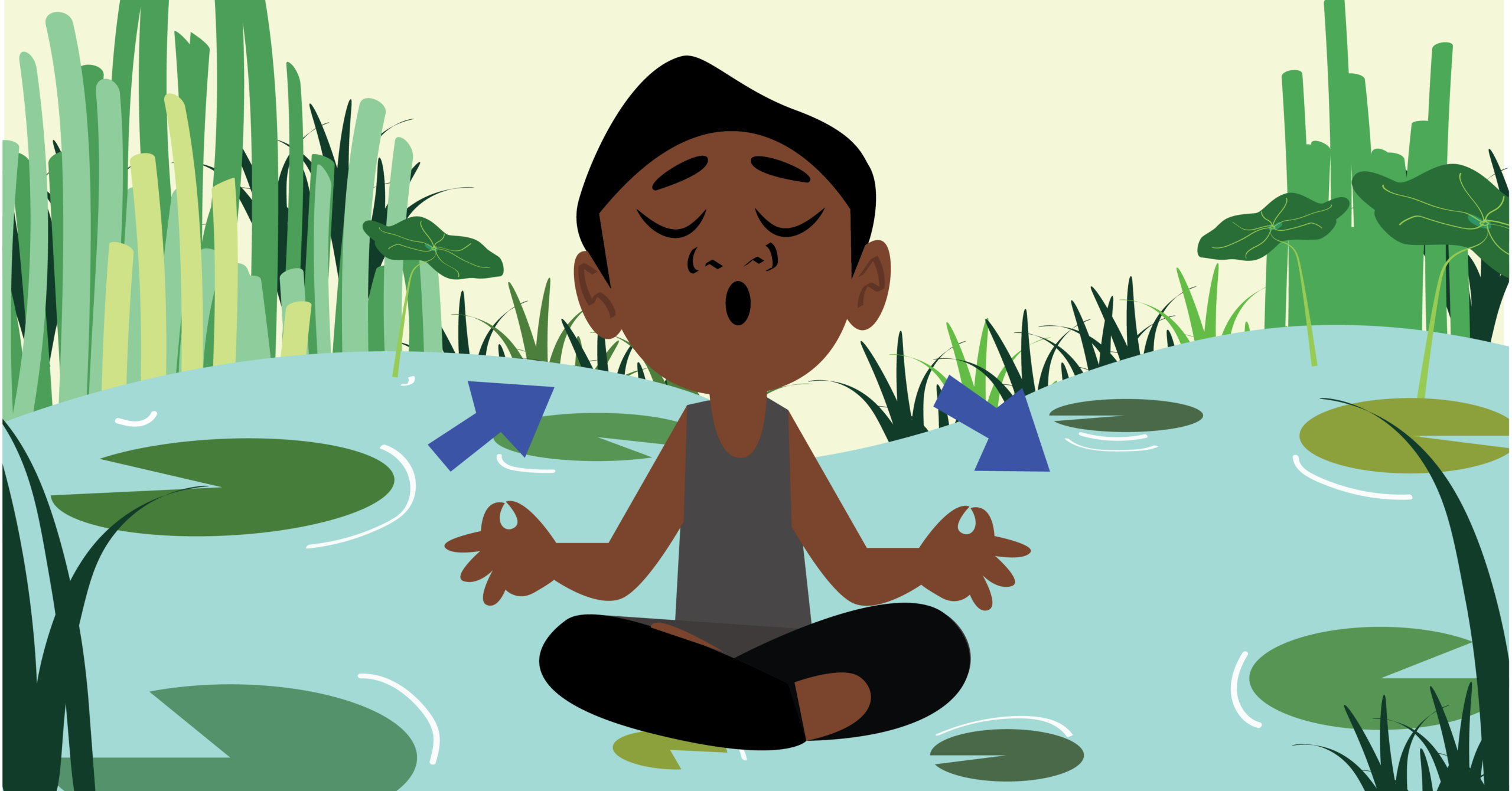Enduring life, one meditation at a time
The benefits of being intentionally focused and slow in our racing world.
You lie awake at night, wrestling with the blanket, re-propping your head on the hot and sticky pillow. The thoughts start racing. What if I failed that psychology exam? You open your eyes to the vast nothingness of your bedroom. What if I fail this course? Your forehead is throbbing, your hair is clumping together, and numbing tingles tiptoe along your arms. What if I can’t graduate in the summer with all my friends, and then they stop talking to me and then start pitying me for being a pseudointellectual, and I have to skip town from the constant ridicule and reinvent my life as a beet farmer outside the booming metropolis of Des Moines, Iowa, even though, deep down, I know I can be a successful neuroscience researcher?
If you’re anything like this man—who most certainly isn’t me—you’ve likely wanted to cut open your skull, remove your brain, and put all the pent-up anxieties on pause. Whether it’s cramming at 4 a.m. for midterms, scavenging for employment amid an uncertain economy, coping with annoying people, or cursing out the ever-delayed MiWay transit system– Life can get overwhelming. But there are methods to quell all these thoughts, emotions, and behaviours—even if only modestly and momentarily—and few are as ingrained and time-tested as meditation.
Meditation has likely been around for as long as humans could think about themselves and the world around them. Or, according to some, for as long as we could sit around a fire and ponder the symbolic nature of the flames in front of us. The oldest written records of structured meditation date to roughly 1500 BCE in India during the ancient Vedic times. Back then, people practiced meditation as a way of connecting to one’s “deeper self.” In the thousands of years since, meditation has evolved and branched off into numerous forms, styles, and practices. Many with unique spiritual aims: from early Taoism in China and Buddhism in India, to the subsequent development of transcendental meditation mantras, to the revival of Burmese Vipassanā in the 1950s, and to the boom of mindfulness-based meditation seen across the world today.
Our modern age is inundated with beeps and notifications, viral tweets and flashy TikToks, and never-ending work emails. It is also filled with rising anxiety and depression rates. Meditation not only helps to minimize symptoms of anxiety and depression, but it can also help boost mood, memory, and attention, improve immune responses, reduce physical pain, and can even improve the quality of sleep—all vital in our quest to survive this chaotic and taxing world around us. With enough practice, you can say goodbye to your late-night racing thoughts.
Whichever meditation you may choose to practice, there are almost as many step-by-step how-to videos on YouTube as there are cat pictures on the Internet. There are also engaging, thoughtful guided meditation shows out there, such as the Headspace series on Netflix or the Sharecare Windows-produced series on Prime Video. Well-researched comprehensive books, such as Thich Nhat Hanh’s The Miracle of Mindfulness, Marcus Aurelius’ aptly titled diary, Meditations, and Shunryu Suzuki’s Zen Mind, Beginner’s Mind, among many others, exist to help too. And you can likewise turn to podcasts or meditation apps, of which, “Meditation Oasis” and “Calm” are personal favourites.
Ironically, so many meditation options exist that it can become overwhelming. So, if meditation sounds like something you want to try, start with one practice. Focus on it. And if it isn’t quite right for you, try another one. Self-compassion and patience are key while meditating because, realistically, meditation is hard. But setting aside even just a little time in your day, however brief, to reflect and ponder and cherish life can have immense mental, emotional, and physical health benefits.
Now… close your eyes… Focus on your breath… Deeply inhale… and count to four…
Copy Editor (Volume 50); Arts and Entertainment Editor (Volume 47) — Chris graduated from the University of Toronto Mississauga in 2019 with a double major in Professional Writing & Communication and Psychology. He previously worked as The Medium’s Arts & Entertainment Section Editor for Volume 47, and currently works as a Copy Editor for Volume 50. By day, Chris is a cinephile and, by night, he is a sleep-deprived cinephile. Besides watching movies, Chris enjoys catching all the sports he can, and you can often find him in his basement lamenting all his teams’ many losses. But online, you can find him at chris@themedium.ca or on Letterboxd @eichey96.


